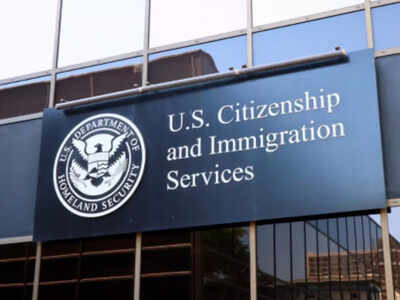ARTICLE AD BOX

The United States is introducing a new layer of immigration scrutiny that could significantly impact foreign workers and green card seekers. According to the Associated Press, the US Citizenship and Immigration Services (USCIS) announced Tuesday that officers will now assess whether applicants have “endorsed, promoted, supported, or otherwise espoused” anti-American, terrorist, or antisemitic views before granting immigration benefits.The move applies to those seeking green cards, employment authorisations, and other legal statuses. While supporters argue it’s about protecting national security, critics told AP it introduces subjectivity and bias into the immigration process—and raises serious concerns for the thousands of highly skilled workers in the US on H-1B visas.
What the new rule says
USCIS officials said the policy is intended to ensure that immigration benefits “are not given to those who despise the country and promote anti-American ideologies,” the Associated Press reported.“Immigration benefits, including to live and work in the United States, remain a privilege, not a right,” USCIS spokesperson Matthew Tragesser said in a statement to AP.However, the agency did not clearly define what qualifies as anti-Americanism, leaving wide discretion to officers during reviews, AP noted.
Why critics are alarmed
Immigration advocates and legal experts told the Associated Press that this vagueness could open the door to stereotyping and implicit bias in decision-making.
“They are opening the door for stereotypes and prejudice to take the wheel in these decisions. That’s really worrisome,” said Jane Lilly Lopez, associate professor of sociology at Brigham Young University, in comments to AP.Attorneys also warned AP that even a social media post or participation in a peaceful protest could trigger questions about an applicant’s ideological alignment.
The constitutional debate
According to the Associated Press, legal experts remain divided on whether this move violates free speech protections.
USCIS maintains that First Amendment rights do not apply to non-citizens outside the United States, while immigration advocates argue that constitutional protections extend to everyone on US soil, regardless of immigration status.“A lot of this administration’s activities infringe on constitutional rights and do need to be resolved, ultimately, in courts,” said Ruby Robinson, senior managing attorney at the Michigan Immigrant Rights Center, in an interview with AP.
Part of a larger immigration crackdown
The Associated Press noted that this change is part of a broader shift in immigration policies dating back to the Trump administration, which introduced:
- Expanded social media vetting of applicants
- Tougher assessments of ‘good moral character’ for naturalization, considering positive contributions alongside the absence of misconduct
“This is what was elected. They’re allowed to interpret the rules the way they want,” Jonathan Grode, managing partner at Green and Spiegel immigration law firm, told AP. “The policy always to them is to shrink the strike zone. The law is still the same.”
What it means for foreign workers and H-1B employees
Impact on green card backlog
For H-1B workers—many of them Indian nationals facing decades-long green card waits—this new ideological review could create an additional obstacle.
A single misinterpreted statement might delay or derail permanent residency applications, experts told AP.
Corporate compliance: Digital conduct matters
Immigration lawyers warned AP that companies sponsoring foreign employees should counsel staff on social media behavior. Posts critical of US policy, political commentary, or controversial hashtags could be misconstrued during background checks.
Workplace activism risks
Foreign employees participating in protests or public debates on US policies could unintentionally jeopardize immigration benefits under this rule.
Attorneys told AP they recommend caution when engaging in politically sensitive discourse online or offline.
Employer liability and hiring delays
Tech companies that rely on global talent may see longer processing times and unexpected denials, affecting workforce planning. Legal experts advised AP that employers should strengthen compliance processes and prepare for additional documentation requests.“People need to understand that we have a different system today,” said immigration attorney Jaime Diez, according to AP.
“A lot more things that apply to US citizens are not going to apply to somebody who’s trying to enter the United States.”
Bottom line
The Associated Press concluded that the policy represents a major shift in US immigration vetting, one that goes beyond criminal history or security risks and into the realm of personal beliefs. For skilled foreign workers, especially those navigating long immigration timelines, this could mean greater uncertainty and the need for extra vigilance in how they present themselves—online and offline.



.png)
.png)
.png)
















 4 hours ago
3
4 hours ago
3









 English (US) ·
English (US) ·